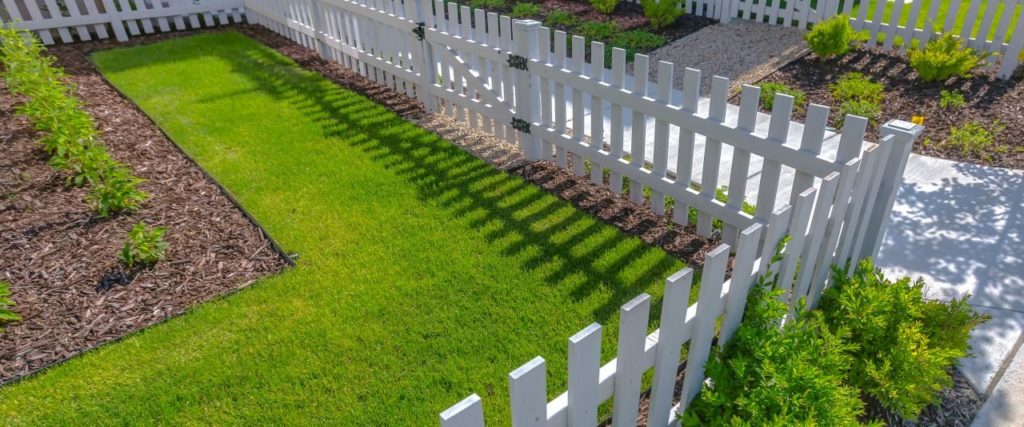Should I Put My Fence on My Property Line?

Introduction
A fence around your property is essential for establishing property lines, keeping your property secure, and upholding your privacy. However, for new resident owners, it can be confusing to install a new fence if you don’t know the rules and regulations of the area. In most cases, your best bet is to hire a professional fence installation expert in the area who is familiar with the local rules. It’s really simple because all you have to do is search “fencing company near me” on Google to find one.
However, if you want to install a fence yourself, you should be careful about not offending your neighbors, or worse, breaking any rules. Here are a few important things you may consider and do before you install a fence on your property line:
The Discussion
- Always determine the property boundaries – The first thing that you need to do before installing a fence on your property is to determine the boundary lines in order to avoid unwarranted trouble. Usually, you need to hire a qualified surveyor which can cost you between $500 to $1000 in most cases. However, you can try to get a copy from the assessor’s office or the county deed if they have one.
Hiring a qualified surveyor may seem costly but it is worth the cost when you realize how much trouble it can save you in the future. For instance, the cost of rebuilding your fence or going to court hearings due to a dispute can not only cost you a huge amount of money but cause you a lot of headaches.
- Check the rules and regulations – You need to honor the rules and regulations set by the jurisdiction in your area or even the homeowner’s association (HOA) to avoid penalties, fines, and legal disputes. Typically, these include guidelines for how far back you should install the fence on your property (2-6 inches), the height of the fence, view, style, visibility, and more.
Most rules depend on the area in which you live. For instance, in a rural area with subdivisions of large yards, the fence placement may not matter much. However, in an overcrowded urban location where every inch matters, you may be permitted to build your fence right on the property line.
- Shared responsibility – Building a fence on the property line can be a great advantage if your neighbor is happy to split the cost of fence installation and share the responsibility of fence maintenance. It can be a good deal for both you and your neighbors since it would make it possible to save cost and time.
However, you can get entangled in a nasty legal dispute if they are not thrilled about the idea. So, always be sure to discuss the idea with your neighbors before you make up your mind and build the fence.
- Consult with experts – You can consult with various experts that you have access to before building your fence to get a correct idea of where you install your fence on your property line. For instance, you may contact your realtors, HOA president, local government representatives, and even fence installation experts to get a complete picture of the problem.
It would also allow you to assess what type of fence to build on your property and enquire more about the details of what type of material, height, or size is allowed in your area.
What to consider when building your fence inside the property line
If you want to take the safe route and build a fence inside your property line, you should still consider a few important things before getting started:
- Adverse possession – When you install your fence a few inches inside your property line, it makes it possible for your neighbors to use the extra strip of land between the fence and the property line. If your neighbors continuously use the extra strip of land for a number of years, they may claim legal ownership rights or adverse possession of the property in about 10-30 years. In rare cases, they might be able to claim the land in as little as 5 years if they pay taxes on that piece of land!
Most homeowners only become aware of such scenarios when they take steps to sell their property in the future, only to realize that the ownership of their land is not as large as it used to be! Thus, you should always remember that your fence can affect the prices when you want to sell your house in the future.
- Prescriptive easement – Prescriptive easement is a type of property easement that your neighbor can earn by regular use of the extra strip of land between the fence and the property line. A prescriptive easement is less legally binding than adverse possession since your neighbor would not be able to sell the property or claim a legal title. However, they can still acquire a legal right to use the property.
This can cause an issue when you want to expand the boundary of your fence or be a problem when you want to sell your house in the future since nobody would want to pay for unusable land.
- Fence maintenance – Technically, you would remain responsible for maintaining the extra strip of land between the fence and the property line. So, even if you notice your neighbors mowing the grass or pulling out the weeds, you shouldn’t count on it.
The opposite is true if your neighbors decide to install the fence and you are left with a strip of their land on your side since they would be responsible for maintaining it.
Conclusion
If you are still confused about whether is suitable to build your fence on the property line but don’t have the time or money to investigate the rules by contacting the local authorities, it is best to hire a local fence installation expert. Simply search “fencing company near me” online to get started.





